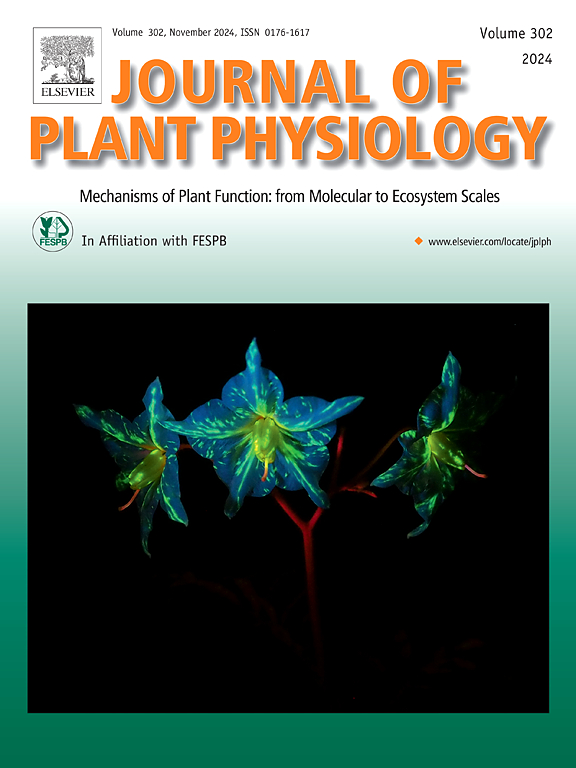Metabolome guided treasure hunt - learning from metabolic diversity
IF 4.1
3区 生物学
Q1 PLANT SCIENCES
引用次数: 0
Abstract
Metabolomics is a rapidly evolving field focused on the comprehensive identification and quantification of small molecules in biological systems. As the final layer of the biological hierarchy following of the genome, transcriptome and proteome, it presents a dynamic snapshot of phenotype, influenced by genetic, environmental and physiological factors. Whilst the metabolome sits downstream of genes and proteins, there are multiple higher levels—tissues, organs, the entire organism, and interactions with other organisms, which need to be considered in order to fully comprehend organismal biology. Advances in metabolomics continue to expand its applications in plant biology, biotechnology, and natural product discovery unlocking many of nature's most beneficial colors, tastes, nutrients and medicines. Flavonoids and other specialized metabolites are essential for plant defense against oxidative stress and function as key phytonutrients for human health. Recent advancements in gene-editing and metabolic engineering have significantly improved the nutritional value and flavor of crop plants. Here we highlight how advanced metabolic analysis is driving improvements in crops uncovering genes that influence nutrient and flavor profile and plant derived compounds with medicinal potential.
代谢组学引导寻宝——从代谢多样性中学习
代谢组学是一个快速发展的领域,专注于生物系统中小分子的综合鉴定和定量。作为继基因组、转录组和蛋白质组之后的生物层级的最后一层,它呈现出受遗传、环境和生理因素影响的表型动态快照。虽然代谢组位于基因和蛋白质的下游,但还有多个更高的水平-组织,器官,整个生物体以及与其他生物体的相互作用,为了充分理解生物体生物学,需要考虑这些。代谢组学的进步继续扩大其在植物生物学、生物技术和天然产物发现方面的应用,揭示了许多自然界最有益的颜色、味道、营养和药物。黄酮类化合物和其他特殊代谢物是植物防御氧化应激所必需的,是人类健康的关键植物营养素。基因编辑和代谢工程的最新进展显著改善了作物的营养价值和风味。在这里,我们重点介绍了先进的代谢分析如何推动作物的改进,揭示了影响营养和风味特征的基因以及具有药用潜力的植物衍生化合物。
本文章由计算机程序翻译,如有差异,请以英文原文为准。
求助全文
约1分钟内获得全文
求助全文
来源期刊

Journal of plant physiology
生物-植物科学
CiteScore
7.20
自引率
4.70%
发文量
196
审稿时长
32 days
期刊介绍:
The Journal of Plant Physiology is a broad-spectrum journal that welcomes high-quality submissions in all major areas of plant physiology, including plant biochemistry, functional biotechnology, computational and synthetic plant biology, growth and development, photosynthesis and respiration, transport and translocation, plant-microbe interactions, biotic and abiotic stress. Studies are welcome at all levels of integration ranging from molecules and cells to organisms and their environments and are expected to use state-of-the-art methodologies. Pure gene expression studies are not within the focus of our journal. To be considered for publication, papers must significantly contribute to the mechanistic understanding of physiological processes, and not be merely descriptive, or confirmatory of previous results. We encourage the submission of papers that explore the physiology of non-model as well as accepted model species and those that bridge basic and applied research. For instance, studies on agricultural plants that show new physiological mechanisms to improve agricultural efficiency are welcome. Studies performed under uncontrolled situations (e.g. field conditions) not providing mechanistic insight will not be considered for publication.
The Journal of Plant Physiology publishes several types of articles: Original Research Articles, Reviews, Perspectives Articles, and Short Communications. Reviews and Perspectives will be solicited by the Editors; unsolicited reviews are also welcome but only from authors with a strong track record in the field of the review. Original research papers comprise the majority of published contributions.
 求助内容:
求助内容: 应助结果提醒方式:
应助结果提醒方式:


